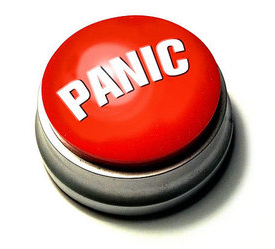 I’ve been fascinated with the long-unfolding analyses of the disaster of Air France Flight 447. It’s a riveting story about human error, leadership failure and physics. But it also underscores how technology and automation — in the spirit of safety and productivity — can have the unfortunate outcome of preventing people from gaining the experience and sensitivity required to take command during abnormal situations.
I’ve been fascinated with the long-unfolding analyses of the disaster of Air France Flight 447. It’s a riveting story about human error, leadership failure and physics. But it also underscores how technology and automation — in the spirit of safety and productivity — can have the unfortunate outcome of preventing people from gaining the experience and sensitivity required to take command during abnormal situations.
The flight from Rio de Janeiro to Paris involved an Airbus 330, one of the most advanced airplanes. It crashed into the Atlantic Ocean on June 1, 2009, killing all 216 passengers and 12 crew. The black box was miraculously recovered two years later. According to the pilot transcript, and an awesome report by Popular Mechanics:
Indeed, AF447 passed into clouds associated with a large system of thunderstorms, its speed sensors became iced over, and the autopilot disengaged. In the ensuing confusion, the pilots lost control of the airplane because they reacted incorrectly to the loss of instrumentation and then seemed unable to comprehend the nature of the problems they had caused. Neither weather nor malfunction doomed AF447, nor a complex chain of error, but a simple but persistent mistake on the part of one of the pilots.
Not surprising, this event is shaping pilot training programs to avoid similar disasters. For example: paying closer attention to weather patterns, establishing clear command when there are two co-pilots alone in the cockpit, and gaining familiarity with hand-flying (versus autopilot) the airplane during all flight phases.
While these human errors are severe, they could be insignificant compared to the long-term impact of automation on experience, according to Popular Mechanics:
The crash raises the disturbing possibility that aviation may well long be plagued by a subtler menace, one that ironically springs from the never-ending quest to make flying safer. Over the decades, airliners have been built with increasingly automated flight-control functions. These have the potential to remove a great deal of uncertainty and danger from aviation. But they also remove important information from the attention of the flight crew. While the airplane’s avionics track crucial parameters such as location, speed, and heading, the human beings can pay attention to something else. But when trouble suddenly springs up and the computer decides that it can no longer cope”on a dark night, perhaps, in turbulence, far from land”the humans might find themselves with a very incomplete notion of what’s going on. They’ll wonder: What instruments are reliable, and which can’t be trusted? What’s the most pressing threat? What’s going on? Unfortunately, the vast majority of pilots will have little experience in finding the answers.
(I highly recommend the Popular Mechanics report, as well as the NOVA documentary.)
The focus of this tragedy focuses on plane safety. However, I think the implications apply broadly. I’m all for technology and automation, for the sake of convenience, productivity and safety. But think about all the examples in our lives where technology and automation is preventing us from gaining the experience and sensitivity required to take command during abnormal situations.
Being a sailor, I think of all the recreational boaters who now use computerized chart plotters. In order to get from point A to point B, it is no longer required to possess basic navigational skills like dead-reckoning or reading analog charts. But what happens when your plotter malfunctions or runs out of batteries in the middle of a severe fog bank at night, or during a storm?
The same goes for automobiles. With the embedding of microcontrollers to help with braking, steering and acceleration, are today’s drivers sufficiently able to switch gears (bad pun) and command their vehicles when their safety automations encounter abnormal conditions or fail? Are today’s drivers losing their ability to drive without those technologies altogether? With the proliferation of GPS, are new drivers even able to read a printed road map?
And it doesn’t take much creativity to wonder how this phenomenon impacts areas beyond the operation of vehicles or heavy machinery.
How about surgeons and hospital emergency rooms?
